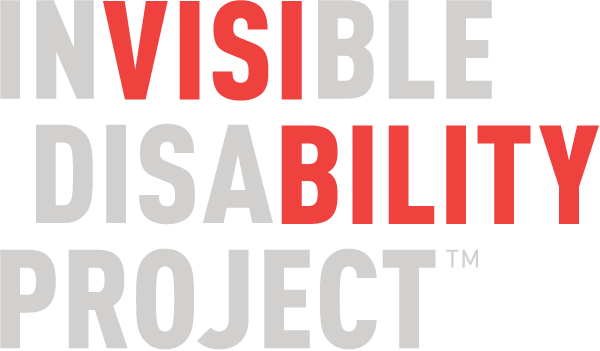My Lived Experiences Shaped My Career In Mental Health
Written by Trishala Khandheria
Up until a few months ago, I had my mind set on one goal and one goal only, and that was to become a physician and follow in my father’s footsteps. My Indian-American upbringing influenced me to believe that this was my destiny and that becoming a doctor was the “right” choice, and therefore, I entered college as a pre-medical student with a major in biochemistry. I was only somewhat interested in the basic science courses, but I knew I had to power through and try my best to get good grades, in order to become a doctor. It wasn’t until my sophomore year, however, that I had the opportunity to expand my horizons and pursue a course in general psychology, and I remember this class very clearly because the professor inspired me to switch my major to the field. As a Jesuit institution, Georgetown University, my alma mater, upholds Jesuit values and the concept of “Cura Personalis” or “care of the whole person”, and aside from being very insightful, as well as teaching us how to apply our knowledge to real-world situations, my professor emphasized this idea of “care of the whole person” and helped me realize that there are many ways to pursue my passion of helping others.
With my upbringing still being a driving force behind my career path, however, I was continuously reinforced that becoming a physician was the “right” choice, and compounded with my interest in psychology, I made the decision to work towards becoming a practicing psychiatrist and took a year off post-graduation to build my credentials as a Clinical Research Associate in Delhi. My research had a component that required me to interview living-liver donors, who were primarily blood-related family members or the spouse of the patient who was undergoing the transplant. I started to notice the psychological effects that were at play for both the recipient and the donor, and how the collectivistic culture and family support made a huge impact on the outcome of the recipient’s and donor’s health. At the end of my contract, I accomplished many professional goals, but by far the most meaningful lesson I learned was the value and importance of mental health.
After my eye-opening experience living and working in India, I decided to move back to the United States and attend the Masters of Science in Medical Physiology program at Case Western Reserve University, where I continued to learn the importance of the human psyche. Not to my surprise, I was still only vaguely interested in the basic science coursework, and after completing the neurology unit, I discovered that I had an interest in the field of clinical neuroscience; therefore, I pursued an area of concentration in this particular field and was a physiological consultant on rounds for the general neurology, stroke, and neuromuscular services. During service, I saw many patients and reviewed many charts, and I was constantly intrigued by the number of patients who were living with mental health conditions. What really surprised me, however, was that a majority of these patients were not seeing a therapist, but were solely relying on prescribed medications to treat their mental health, and after administering a Beck’s Depression Inventory to one of the patient’s in the ward, she confided in me and told me that she wants to see a therapist, but her family would judge her for doing so. I thought about this encounter throughout the rest of my time on service and how I experienced something similar, since I was stigmatized for seeing a therapist, as it is considered a disgrace in Indian society to do so; but, I also acknowledged that going against the grain and overcoming this stigma was of the utmost importance, and through my experiences, I started to notice the difference a therapist can make in one’s life. The patients in the ward who were seeing therapists tended to be much more optimistic about their health than the ones who were relying on medications, and these realizations, as well as my own personal growth from therapy, inspired me. I discovered that I wanted to make an impact on this population, but not by prescribing them medications with the hope that the problem will go away, rather, I wanted to empower patients, give them strength, and help them grow.
Although I came to this realization, I still had little direction, and I ended up confiding in my therapist about how my upbringing and pleasing my parents was something that defined my career path, in the sense that I didn’t know how to internalize my own values. At this point, she asked me the question, “Well, what makes you tick”? Let me walk you through my thoughts. I am a current alum of Delta Phi Epsilon (DPE) Professional Foreign Service Sorority, and in college, where I was elected to recruit new members, my duty was not only to guide them professionally, but also to instill in them a sense of belonging with a group of women who shared a similar interest in foreign affairs. To this day, I am not only an alumni mentor to new members, but I am also very close to the members that I recruited, and they often tell me that DPE is their home away from home, and that I made this possible. Being aware of the impact I have made in their lives is one of the greatest gifts I could ever ask for. I then began to think about what makes me “tick” nowadays, and I thought of my job as a tutor, specifically, my sessions with one of the high school students who I tutor in psychology. From my undergraduate education, I knew what it felt like to fail academically and how hard it is to pick yourself back up after the fact, and because of this, I was motivated to help my student reach her full potential. After her midterm, I received such a positive response, and I could tell that she was motivated to succeed. She asked for my continued support and I received the following text message shortly after her final exam: “I just wanted to let you know that all of the studying paid off. I got an A for my final grade for the semester, and I could not be more grateful for your constant support”. Reflecting on this moment, as well as many other experiences, answered the question of “What makes me tick?”, and I walked into the next session with my therapist and told her listening to people, talking them through their problems, and most importantly, empowering them and guiding them to become their best selves is what makes me “tick”.
Having told you my story, you must be wondering whether or not I am going to become a doctor, and the answer is that I decided to forgo the “right” choice, and follow my passion instead. I am currently an aspiring student who hopes to pursue a degree in Marriage and Family Therapy and make a positive difference in the lives of many people, including myself. I am well aware that this career will not be easy and that there will be times when I do not receive positive responses, however, as someone who has failed a number of times and religiously learned how to get back on my feet, as well as someone who has battled cultural stigmas surrounding mental health, I have gained one quality that has helped me accomplish so much in my life and that is persistence, and knowing this about myself gives me the strength to wake up every morning and achieve my dreams.
ABOUT THE AUTHOR
Trishala Khandheria
Trish is an aspiring student who hopes to become a licensed Marriage and Family Therapist. She has her BA in Psychology from Georgetown University, and will be graduating in May with an MS in Medical Physiology from Case Western Reserve University, where she pursued a focused study in Clinical Neuroscience. When she is not studying, she is either tutoring students in Elementary Math, Elementary English, or Psychology, trying a new recipe, or spending time in the great outdoors.







